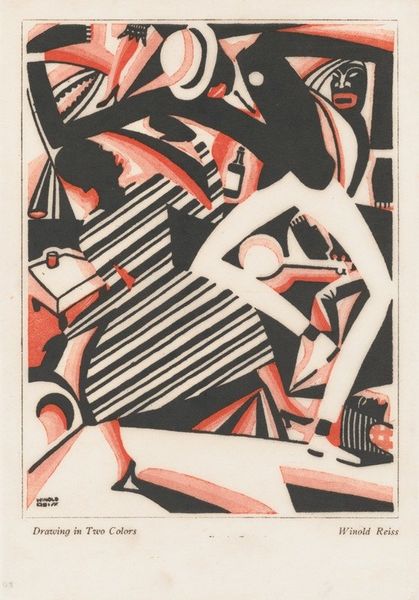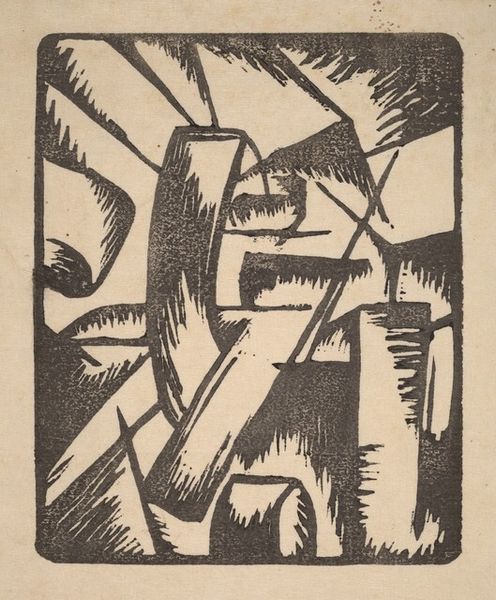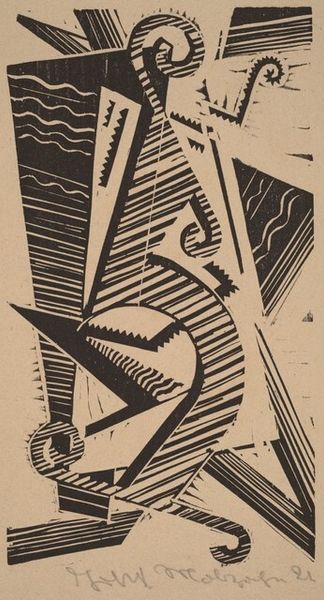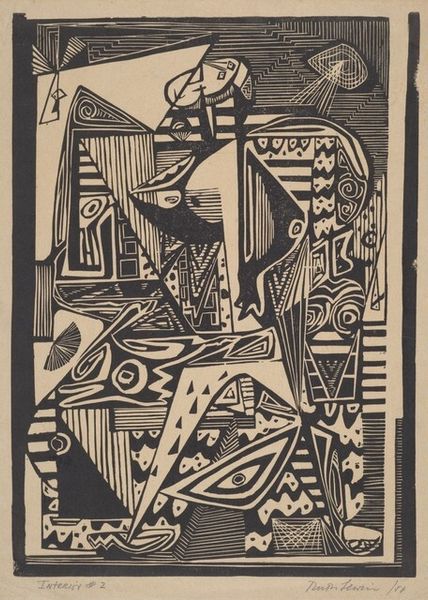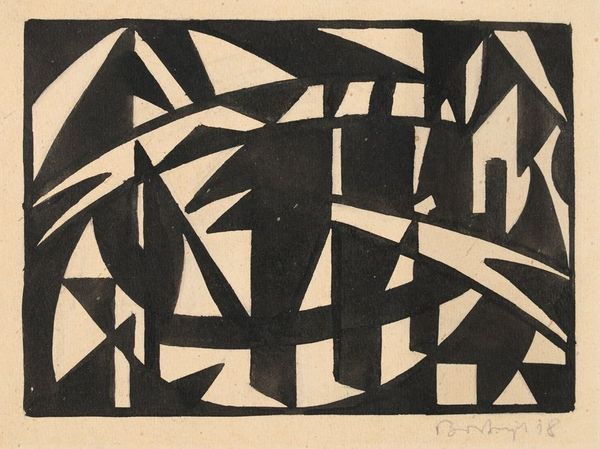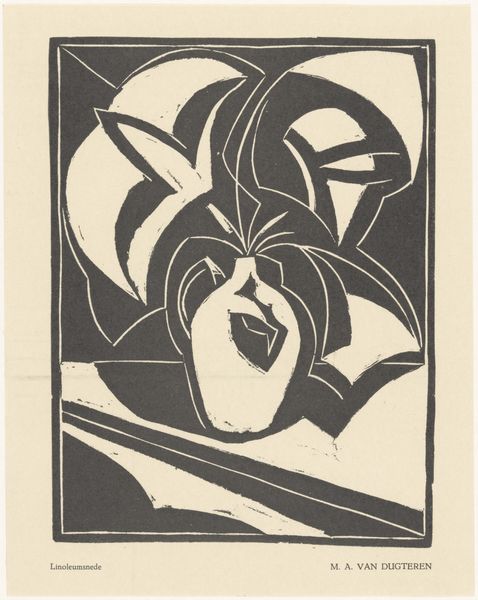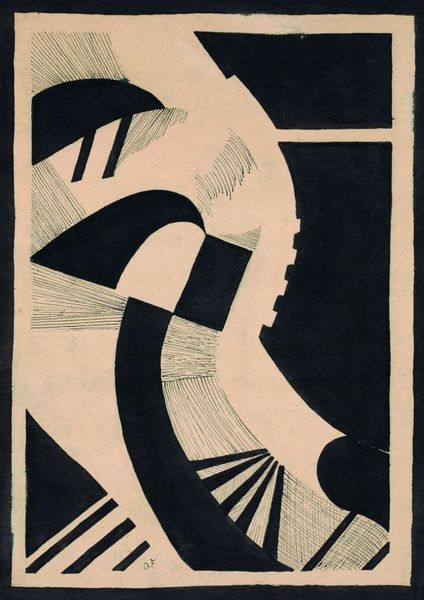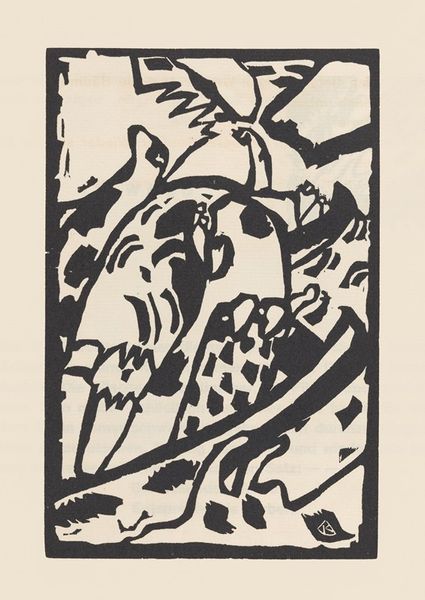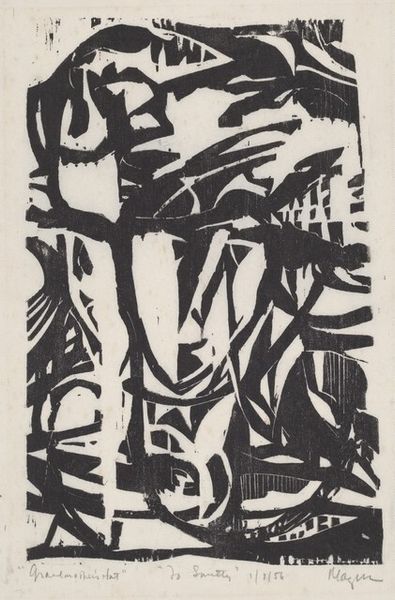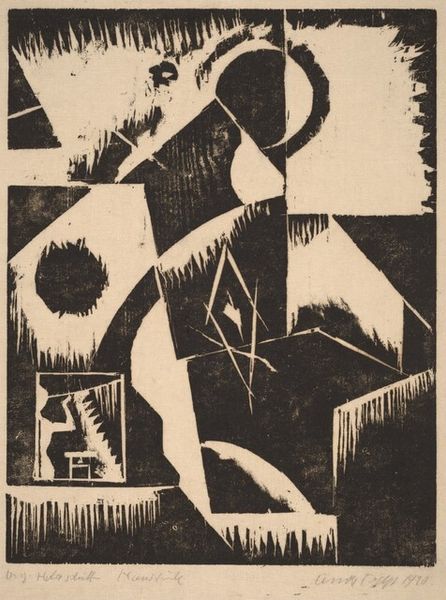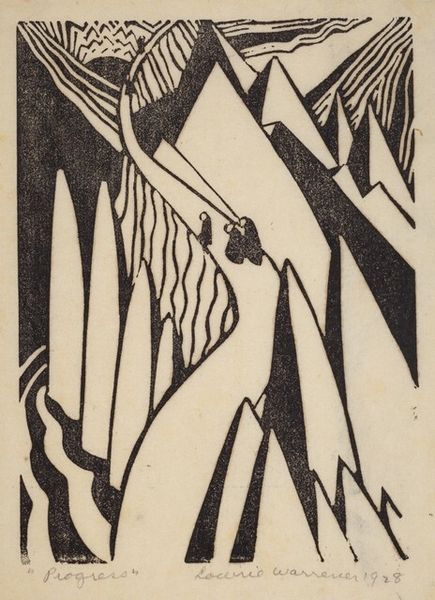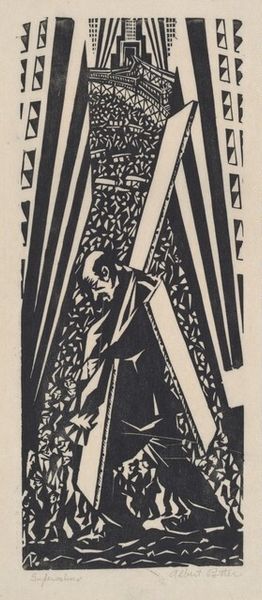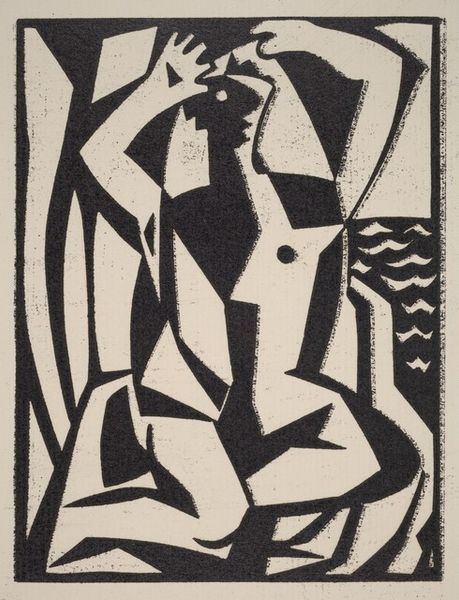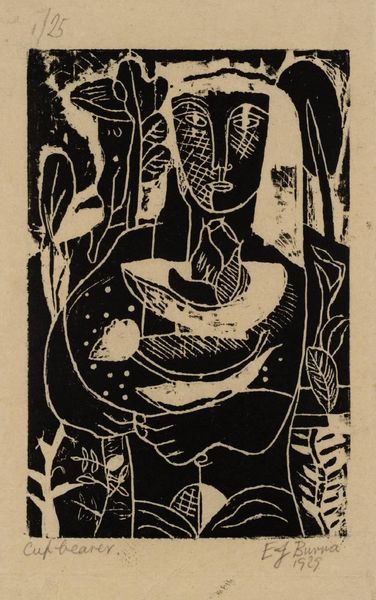
print, woodcut
#
cubism
# print
#
figuration
#
geometric
#
woodcut
Dimensions: block: 17.46 × 9.05 cm (6 7/8 × 3 9/16 in.) sheet: 18.1 × 9.84 cm (7 1/8 × 3 7/8 in.) mount: 50.17 × 35.56 cm (19 3/4 × 14 in.)
Copyright: National Gallery of Art: CC0 1.0
Karel Maes created this striking linocut, Violiniste, in 1919, using a sharp blade to carve into a block of linoleum, a material more commonly found on floors than in fine art. The stark contrast between black and white, achieved through the direct, subtractive process of linocutting, emphasizes the dynamic composition. The violinist, fragmented into geometric shapes, embodies the energy of the music itself. Look closely, and you can almost hear the rhythmic sawing of the bow against the strings. Maes's choice of linoleum, an industrial material, suggests a connection to the burgeoning modernist movement, which often embraced the aesthetics of mass production. The labor-intensive process of carving the block by hand, however, also speaks to the enduring value of craft in an age of increasing mechanization. By combining an everyday material with skilled handcraft, Maes blurs the boundaries between the industrial and the artisanal, inviting us to reconsider the social and cultural significance of both.
Comments
No comments
Be the first to comment and join the conversation on the ultimate creative platform.
